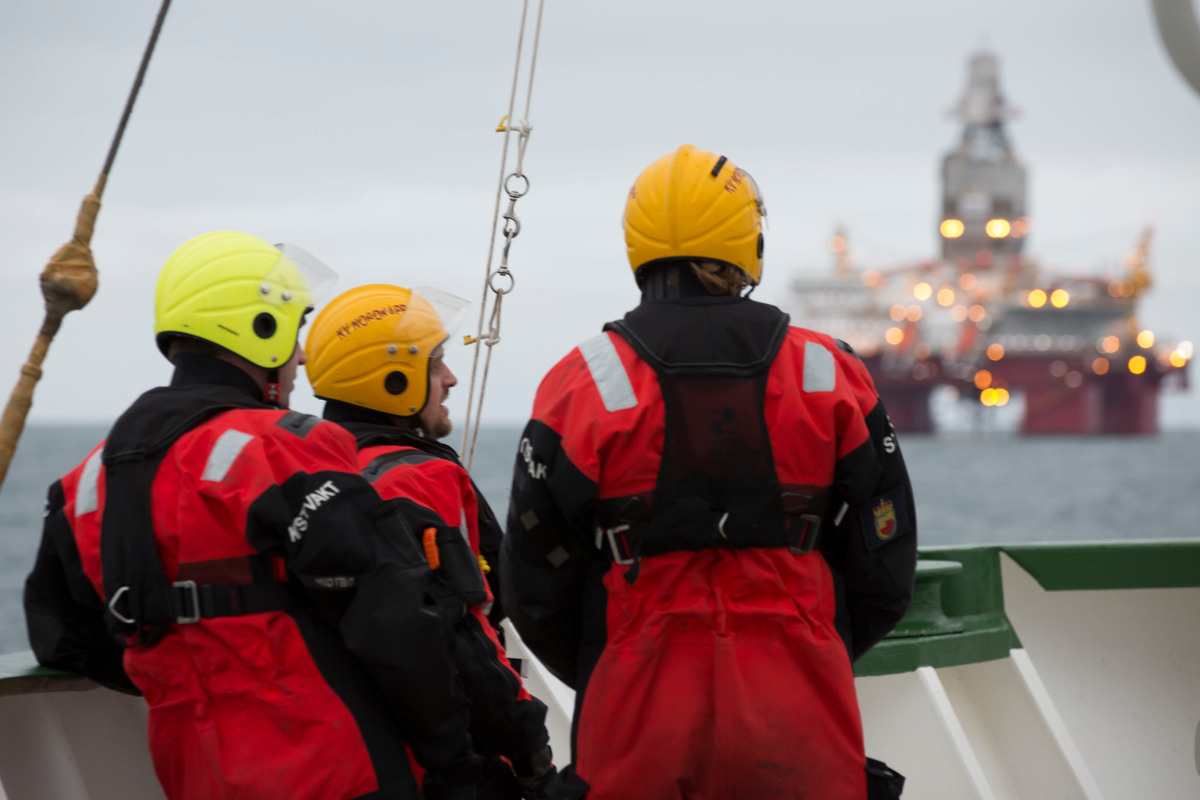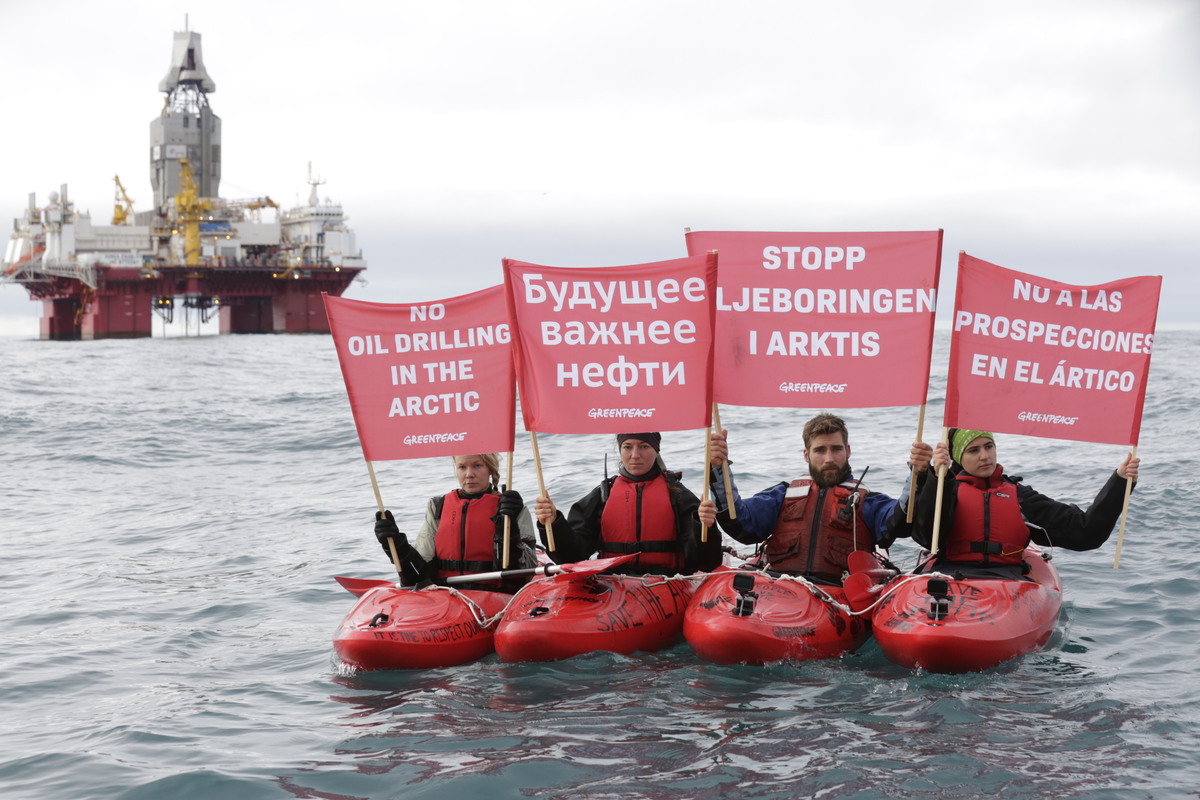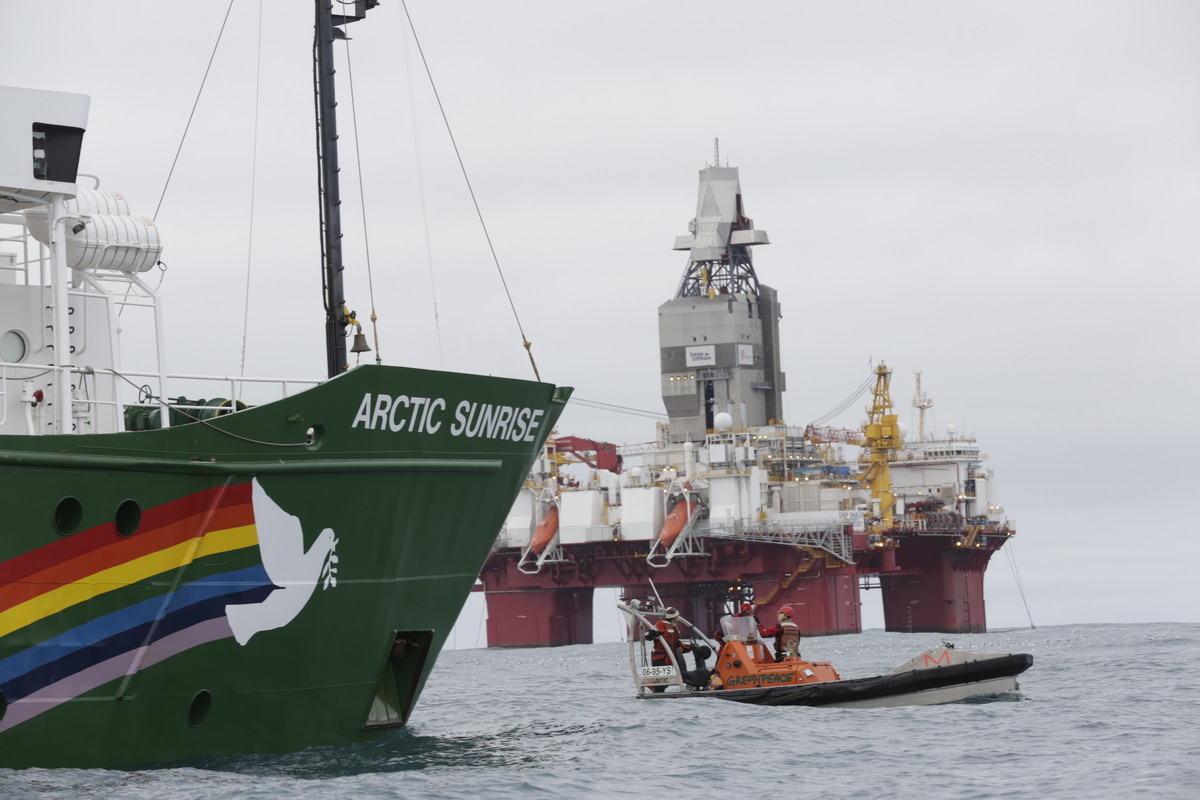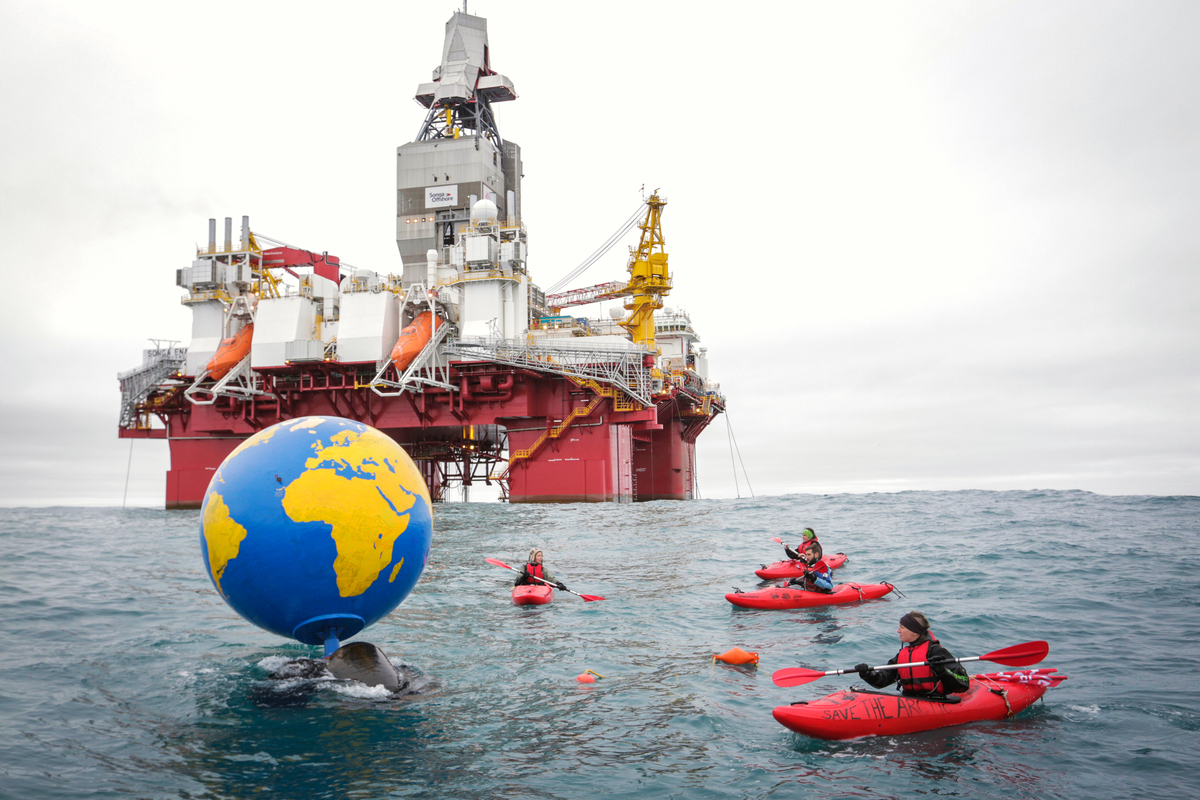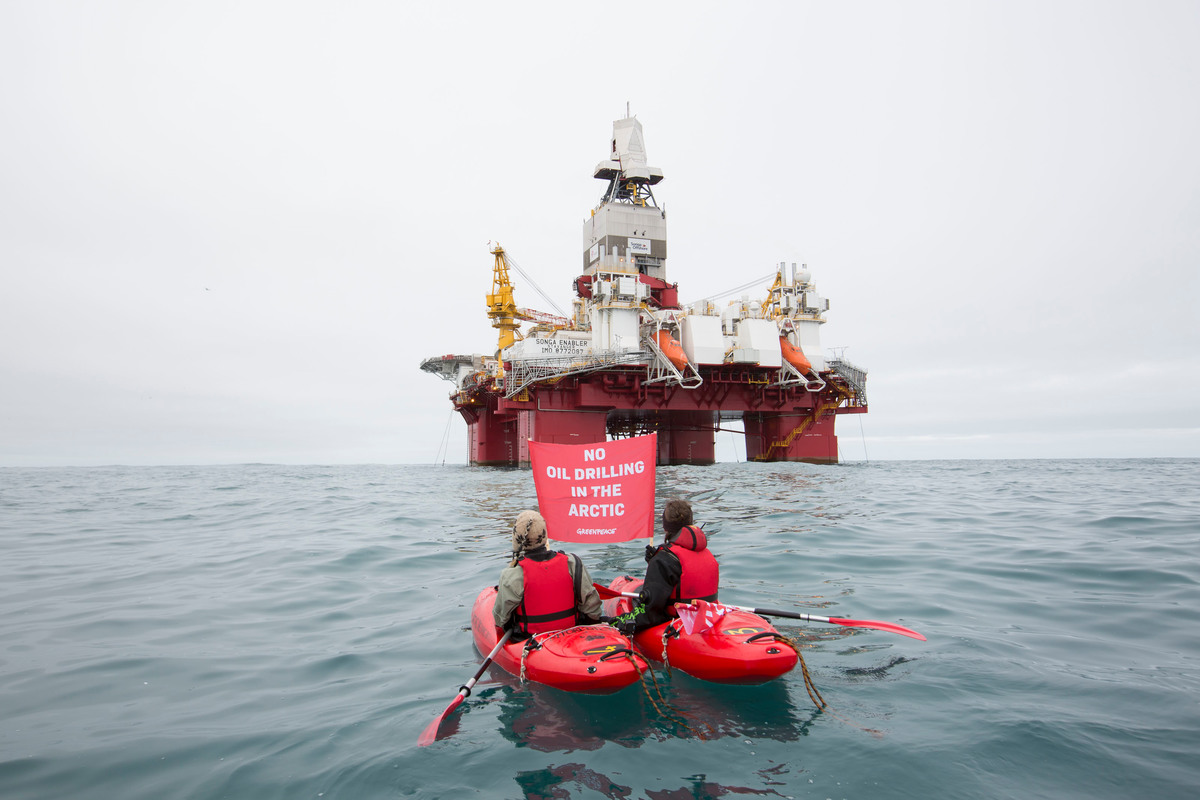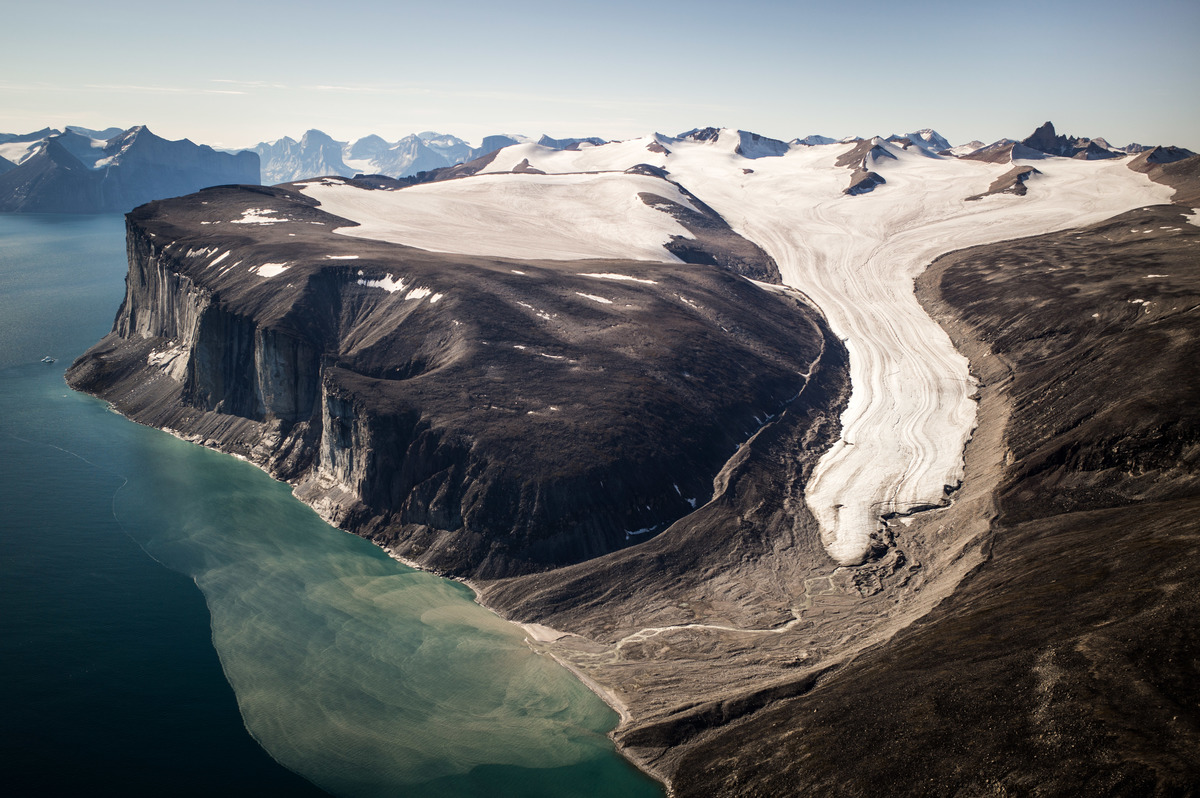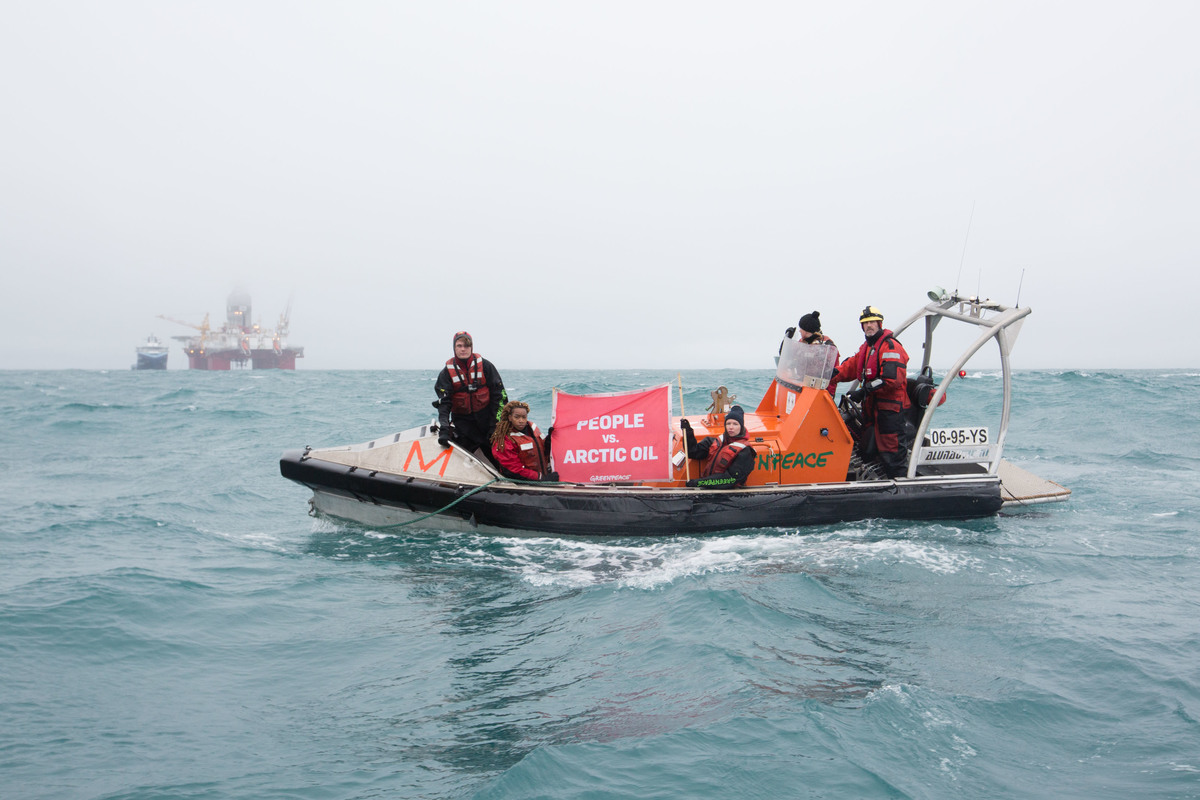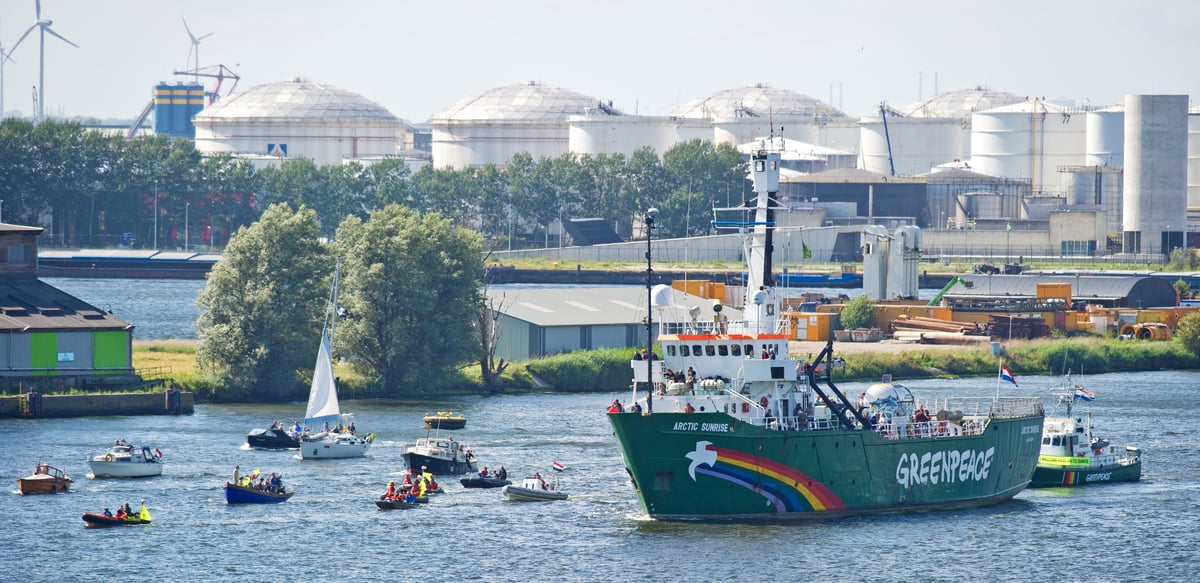Filtered results
-
Greenpeace ship Arctic Sunrise and activists released after being arrested for protesting against oil drilling in Norway
Tromsø, Norway, 21 August 2017 - The Greenpeace ship Arctic Sunrise and her crew of 35 activists have been released in Tromsø, Northern Norway. The Norwegian Coast Guard boarded the Arctic Sunrise and arrested the ship and her crew last Thursday at the Korpfjell drill site after a peaceful protest against Statoil’s controversial oil drilling…
-
The Arctic Sunrise has been seized. Here’s why:
The message is clear: Norway, it’s time to choose people over oil. 35 activists from 25 countries around the world are in the Barents Sea to demand an end to Arctic drilling.
-
Greenpeace activists confront Norwegian government’s Arctic oil drilling site
Korpfjell, Barents Sea, Norway 17 August 2017 – Peaceful activists from the Greenpeace ship Arctic Sunrise have entered the exclusion zone of Statoil’s oil rig, Songa Enabler in the Barents Sea with kayaks and inflatable boats, while swimmers are in the waters protesting with hand banners. The activists are there to deliver this message to…
-
Peaceful protest against Arctic drilling unlawfully ended by Norwegian authorities
Korpfjell, Barents Sea, Norway 17 August 2017 – Norwegian authorities have arrested the Greenpeace ship Arctic Sunrise, following a peaceful protest in the Barents Sea. The authorities unlawfully ended the activists’ peaceful protest against drilling in the Arctic with seizure of the ship and arrests of all 35 activists and crew members on board. The…
-
Why are there pesticides in our eggs?
In case you missed the news this week, here’s what we know so far: during the first week in August, the Dutch food safety authority (NWMA) announced that they discovered tens of thousands of eggs contaminated with fipronil - a toxic anti-lice pesticide, banned in food production in the EU. Dutch and Belgian police have…


